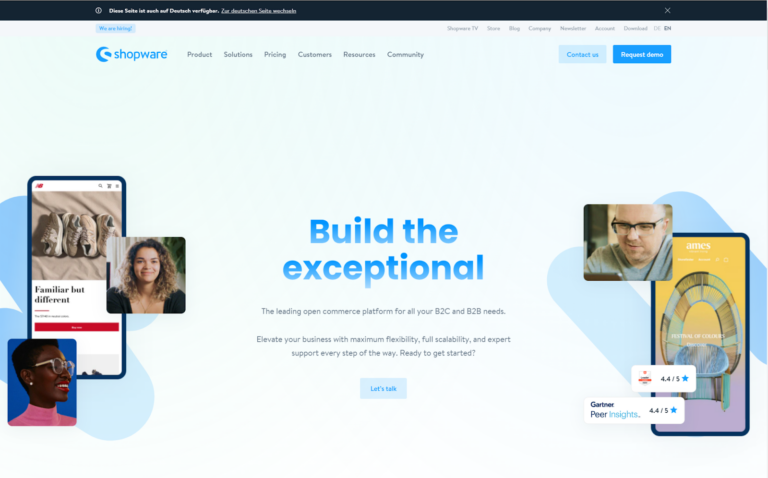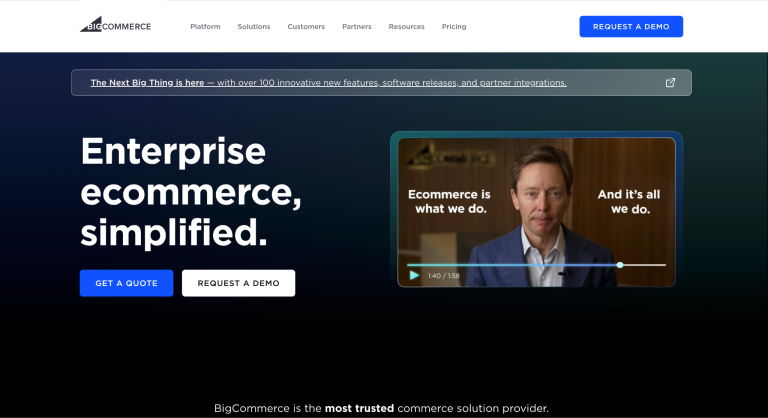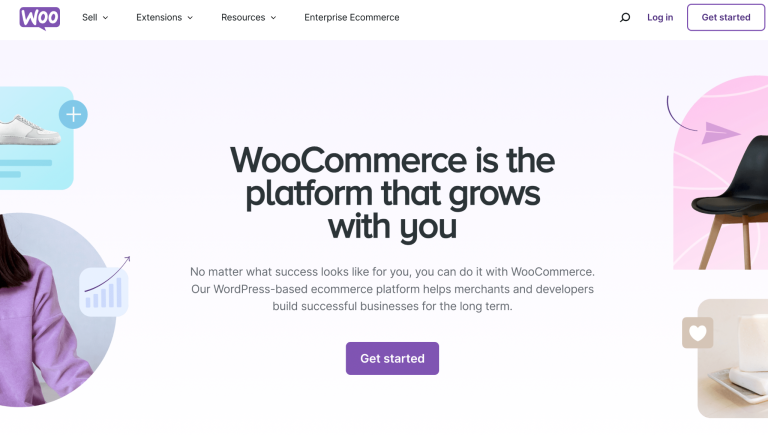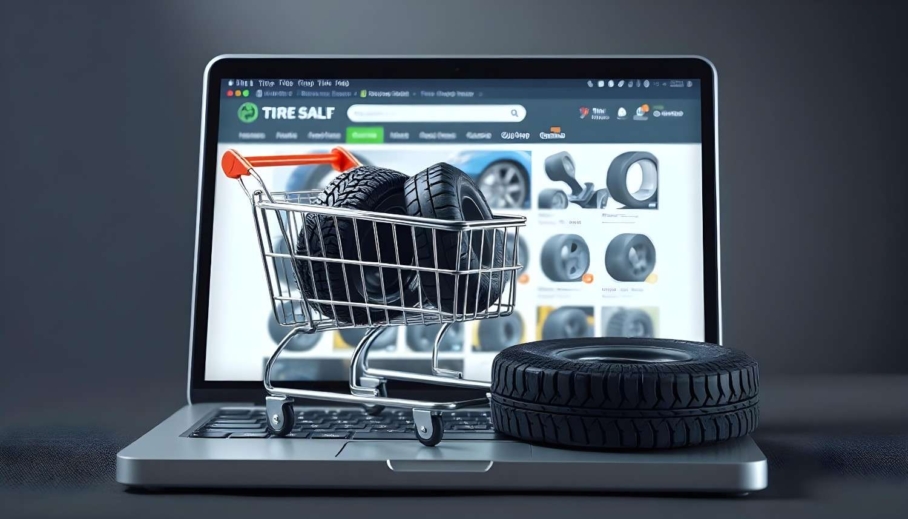Greetings! I'm Aneesh Sreedharan, CEO of 2Hats Logic Solutions. At 2Hats Logic Solutions, we are dedicated to providing technical expertise and resolving your concerns in the world of technology. Our blog page serves as a resource where we share insights and experiences, offering valuable perspectives on your queries.
Quick Summary
Selling automotive parts online isn’t like selling regular products – you need platforms that handle vehicle compatibility, part fitment, and massive catalogs. This guide reviews the top 5 automotive parts e-commerce platforms Shopware, Magento, Shopify, BigCommerce, and WooCommerce, breaks down their pros and cons, and helps you pick the right one based on your business size and budget.
If you’re selling automotive parts online, you know it’s not like selling regular products. Your customers need to know detailed view before they buy it.
That’s where most generic e-commerce platforms fall short when it comes to automotive parts e-commerce. Sure, they can handle payments and shipping, but they weren’t built for the unique challenges of automotive retail. You need systems that can match parts to vehicles, handle massive catalogs with technical specs, and give customers confidence they’re buying the right part.
Choosing the wrong automotive parts e-commerce platform means dealing with expensive workarounds, frustrated customers returning wrong parts, and missing out on sales because your site can’t answer basic compatibility questions. The right platform handles these automotive-specific needs naturally, helping you sell more while reducing headaches.
This guide breaks down the top 5 platforms that actually work well for automotive parts retailers, what features matter most, and how to pick the right one for your business size and needs.
Top 5 Automotive Parts E-commerce Platforms
Here are the leading platforms that excel at handling automotive parts sales:
Shopware: Industry-Specific Solutions

Shopware is one of the best e-commerce platforms for automotive parts businesses. It includes essential compatibility tools, robust parts catalog management, and built-in industry-standard integrations. Extensive customization options and a strong plugin marketplace allow retailers to tailor Shopware for their unique needs. The platform also features advanced AI integration capabilities, enhancing the customer experience through personalization and intelligent product recommendations.
Pros of Shopware for Automotive Parts Retailers
- Shopware is equipped to handle a wide variety of automotive products, including complex vehicle-part compatibility searches. It effortlessly manages a large number of products and scales with your business growth.
- Extensive customization lets you design unique storefronts and workflows to fit your branding and process requirements. Shopware’s plugin ecosystem supports features such as advanced filtering, payment integrations, and marketing tools for automotive retail.
- Built-in AI Copilot and personalization tools suggest relevant parts and increase upsell opportunities. These capabilities also enable tailored shopping experiences that drive conversions and customer loyalty.
- Seamless integration with ERP, logistics, and fulfillment systems streamlines inventory management and order processing. Shopware’s API-first architecture makes it easy to connect external business systems for efficient operations.
How to Scale Your Automotive Store to Handle Millions of Products Without Crashing
Shopware’s architecture is optimized to handle exceptionally large catalogs, supporting automotive businesses that need to manage millions of SKUs efficiently. Its advanced indexing, caching, and database optimization allow fast search and filtering even as product numbers grow into the millions. Learn more
Cons:
- Higher pricing than competitors
- Limited app ecosystem compared to Shopify
- Requires technical expertise for customization
- Less suitable for small retailers
Want to sell millions of automotive parts without your store slowing down?
Magento (Adobe Commerce): Enterprise-Grade Power

Adobe Commerce delivers enterprise-level flexibility and customization for complex automotive operations. The platform handles unlimited catalog sizes and supports sophisticated multi-store configurations for diverse business models.
Pros:
- Unlimited customization and flexibility
- Multi-store capabilities for different markets
- Extensive third-party extensions
- Advanced B2B functionality
- Handles complex catalog requirements
Cons:
- High implementation and maintenance costs
- Requires dedicated development resources
- Complex learning curve
- Resource-intensive hosting requirements
- Long implementation timelines
Shopify: Simplicity and Versatile Integrations

Shopify provides user-friendly e-commerce with automotive functionality through its extensive app ecosystem. The platform offers quick deployment and reliable hosting, making it attractive for small to medium automotive retailers.
Pros:
- Easy setup and user-friendly interface
- Extensive app ecosystem for automotive features
- Reliable hosted solution with automatic updates
- Quick time-to-market
- Transparent pricing structure
Cons:
- Relies heavily on third-party apps for automotive features
- Transaction fees on external payment gateways
- Limited customization without apps
- App costs can accumulate quickly
- Less suitable for complex B2B requirements
BigCommerce: Robust Built-In Features

BigCommerce combines ease of use with powerful native features, reducing dependency on third-party apps. The platform offers enterprise-grade capabilities at competitive pricing with strong API integration support.
Pros:
- Many features built-in (reduces app dependency)
- No transaction fees
- Strong API for integrations
- Multi-currency and multi-language support
- Good value for enterprise features
Cons:
- Limited automotive-specific features out of the box
- Theme customization can be complex
- Annual sales limits on lower plans
- Smaller app ecosystem than Shopify
- Less flexibility than open-source solutions
WooCommerce: Flexible Open-Source Platform

WooCommerce offers maximum flexibility and cost-effectiveness through its open-source WordPress foundation. The platform provides unlimited customization potential with extensive plugin support for automotive functionality.
Pros:
- Most cost-effective solution
- Unlimited customization potential
- Large plugin ecosystem for automotive features
- No transaction fees or sales limits
- Complete control over hosting and data
Cons:
- Requires technical expertise or development partnership
- Ongoing maintenance and security responsibilities
- Performance optimization needed for large catalogs
- Hosting and plugin costs can add up
- No dedicated support (relies on community)
Feature Comparison Table
| Feature | Shopware | Magento | Shopify | BigCommerce | WooCommerce |
|---|---|---|---|---|---|
| Automotive Specialization | Native | Extensions | Apps | Apps | Plugins |
| Catalog Size Support | Unlimited | Unlimited | 100K+ products | Unlimited | Unlimited |
| Mobile Optimization | Excellent | Good | Excellent | Excellent | Variable |
| B2B Features | Native | Native | Apps | Limited | Plugins |
| Implementation Time | Medium | Long | Fast | Fast | Variable |
| Technical Expertise Required | Medium | High | Low | Low | Medium-High |
| Starting Price Range | $600-2000/mo | $2000-6000/mo | $29-299/mo | $29-400/mo | $10-100/mo |
| Scalability | High | Very High | High | High | High |
| Customization | High | Very High | Medium | Medium | Very High |
Key Features Required for Automotive Parts Online Stores
Advanced Filtering and Search
Automotive parts catalogs are inherently complex, with products categorized by multiple attributes including brand, price range, numbers, part specifications, and compatibility.
The search functionality must handle various input methods, including part numbers, manufacturer part numbers, and descriptive searches. Intelligent search algorithms should recognize common abbreviations, handle typos gracefully, and suggest alternatives when exact matches aren’t available.
Large Catalog Management
Automotive parts retailers often manage catalogs containing hundreds of thousands or even millions of products. The eCommerce platform must handle this scale efficiently while maintaining fast page load times and accurate search results. Catalog management tools should support bulk imports, automated price updates, inventory synchronization, and seamless integration with supplier data feeds.
Product information management becomes critical at this scale. The platform should support rich product descriptions, multiple high-resolution images, technical specifications, installation guides, and compatibility charts. Version control and approval workflows ensure that product information remains accurate and consistent across all channels.
Mobile Optimization and User Experience
Mobile commerce now represents over 50% of e-commerce traffic, making mobile optimization non-negotiable for automotive parts retailers. However, mobile optimization for automotive parts goes beyond responsive design. The interface must accommodate complex search workflows, detailed product specifications, and compatibility verification on smaller screens. Quick and streamlined checkout processes become essential for mobile conversion optimization.
Conclusion
The automotive parts e-commerce landscape offers diverse platform options suitable for different business sizes and requirements. Begin your platform selection process with comprehensive requirements documentation addressing current needs, growth projections, and integration requirements.
The success of your automotive parts e-commerce business depends significantly on choosing the right platform foundation. Take time to thoroughly evaluate options, consider long-term needs, and select a solution that will support your business growth and customer satisfaction objectives. The investment in proper platform selection will pay dividends through improved operational efficiency, customer experience, and business scalability for years to come. The team at 2Hats Logic can help you with everything from migration to customization and scaling your automotive parts store.
FAQ
Which platform is best for selling automotive parts online?
Platforms like Shopware, Shopify, Magento, and WooCommerce are popular choices, as they support large catalogs and custom features needed for automotive e-commerce.
What features should an automotive parts e-commerce platform have?
Key features include advanced search and filtering, compatibility check, inventory management, and easy integration with payment and shipping systems.
Why do automotive parts stores need a specialized e-commerce platform?
Because automotive products often have complex attributes and fitment requirements, a specialized platform ensures better customer experience and reduces returns.

Related Articles








